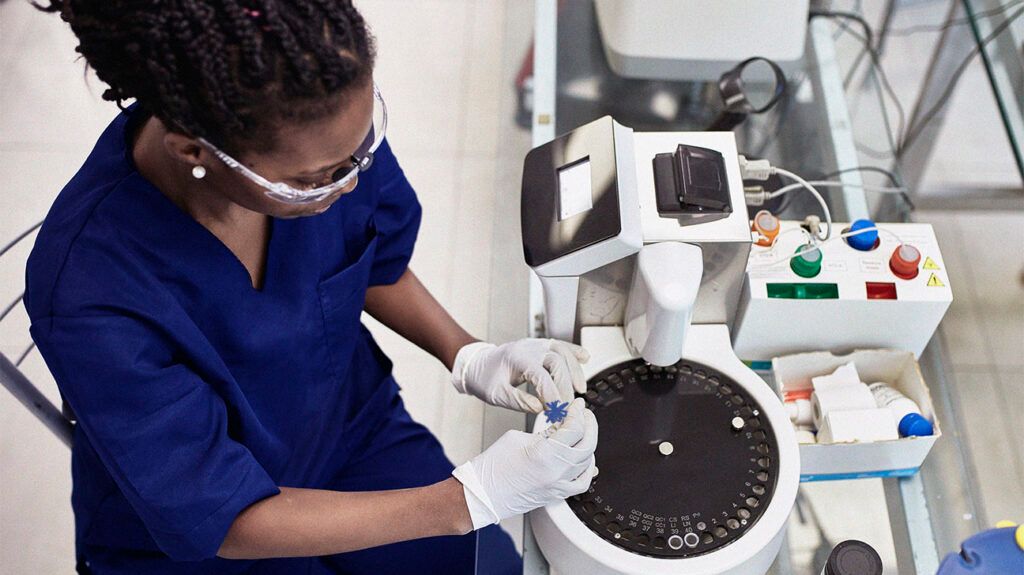Hepatitis B (HBV) is a viral infection that affects the liver by causing inflammation. This can lead to permanent scarring, what medical professionals call liver fibrosis or cirrhosis.
Most hepatitis B infections last less than 6 months, but sometimes the infection becomes chronic, lasting longer than 6 months and causing much more damage.
Read on to discover how HBV affects the liver, available treatment options, and how to prevent HBV.

The liver is in the right abdomen behind the lower ribs. It is an important organ that keeps almost every body system working properly.
Hepatitis B is a complex virus that attacks the cells of the liver, causing infection and inflammation that can lead to liver damage.
HBV spreads through contact with blood, semen, saliva, or other body fluids of a person with the virus.
After contracting the virus, a person may have an acute, or sudden, infection that lasts several weeks up to 6 months until the immune system overcomes the infection.
Some people have chronic HBV, meaning the infection does not go away and continues to cause damage. Young people and individuals who have compromised immune systems are more likely to have chronic HBV.
The hepatitis B virus attacks the liver and disrupts its normal function by triggering an immune response that leads to inflammation.
Liver fibrosis
Liver fibrosis is scarring in the liver due to chronic inflammation or damage from hepatitis B.
The scar tissue
Early detection of hepatitis B may help prevent or slow the development of liver fibrosis.
Liver cirrhosis
Liver cirrhosis is a serious condition that happens when liver fibrosis becomes
The scarring makes it difficult for the liver to function properly, which can have widespread effects on many body systems.
As liver cirrhosis progresses, the person may have symptoms such as fatigue, abdominal pain, and jaundice, which is a yellowing of the skin and eyes.
Without treatment, liver cirrhosis can lead to liver failure. HBV itself is also a risk factor for liver cancer, making it crucial for people with hepatitis B to get medical care and regular screening tests.
In an otherwise healthy person with HBV, doctors will take blood tests to determine if their immune system is effectively blocking the virus from progressing or becoming an active infection.
Doctors
When a person’s immune system is or is expected to become compromised (for example, in a person with cancer expecting to start chemotherapy), doctors would recommend treatment.
If the condition does become chronic (longer than 6 months) and blood work shows it is damaging the liver, the doctor may prescribe antiviral medications.
Examples of antiviral medications include:
- entecavir (Baraclude)
- tenofovir alafenamide (Vemlidy)
- tenofovir disoproxil fumarate (Viread)
While these medications do not cure the condition, they may help reduce damage caused by the virus.
If an individual develops cirrhosis of the liver, recommendations are seeing a doctor who specializes in liver diseases.
In severe cases, when the liver is failing, a liver transplant is the best option for survival.
Because there is no cure for hepatitis B, and the condition can cause permanent damage, preventing hepatitis B is key.
The virus spreads through body fluids such as semen, saliva, or blood.
Examples of how someone can contract the virus
- sexual intercourse with someone who has the virus
- sharing needles, syringes, or other injection equipment
- direct contact with blood or open wounds of someone with the virus
- pregnant person with the virus transferring it to the baby during delivery
To reduce the risk of developing hepatitis B, an individual can:
- not have sexual contact with someone with HBV
- not share needles or other injection equipment
- wear gloves when touching another person’s blood or open sores
- only get tattoos by artists who use sterile tools
- avoid sharing personal items such as razors, nail clippers, and toothbrushes
Hepatitis B vaccine
The hepatitis B vaccine is considered safe for all ages, including expectant people and newborns through teens.
Adults at risk of contracting hepatitis B or those with chronic liver disease should also consider getting the vaccine.
Typically, doctors administer the vaccine in three shots spread over 6 months.
The
This section answers some frequently asked questions about HBV.
Which hepatitis is worse on the liver?
Hepatitis B and C are both serious conditions that affect the liver and can lead to liver cirrhosis, failure, or cancer.
Both conditions can be short term or become chronic. People with hepatitis C are
Hepatitis B has a vaccine, but hepatitis C does not. However, hepatitis C has more options for curative treatments with medications.
Learn more about hepatitis C medications.
How long does it take for hepatitis B to destroy your liver?
The timeline for how long it takes for hepatitis B to destroy a person’s liver varies, and not everyone develops long-term damage.
Individuals with chronic hepatitis B may develop complications within a few years of the initial infection, while for others, it may take much longer.
Several factors, such as a person’s age and overall health, play a role in the progression of hepatitis B.
Can a liver heal itself from hepatitis B?
Treatment can help most otherwise healthy people keep the viral infection managed and prevent it from attacking the liver.
However, they’re advised that keeping follow-up doctors’ appointments is required to monitor liver and virus status for screening and escalating treatment if necessary.
The liver
Hepatitis B is a viral infection that affects the liver.
Some cases of HBV last for several weeks or up to 6 months and cause minimal liver damage. However, sometimes HBV becomes a chronic infection that leads to scarring in the liver.
When the condition is severe, the liver can develop cirrhosis which may eventually lead to liver failure or cancer.
Avoiding exposure to hepatitis B involves not coming in contact with body fluids of a person with HBV. Getting the HBV vaccine, a series of three shots spread over several months, can help protect against HBV.
